One of the features that makes Six Ages (and King of Dragon Pass before it) unique is how it handles advice. Certainly games have had advisors before (such as Hidden Agenda or Civilization II), but in Six Ages your advisors are actual playing pieces, as well as part of the user interface. They are player agents and contribute to immersion, but their primary role is to provide information.
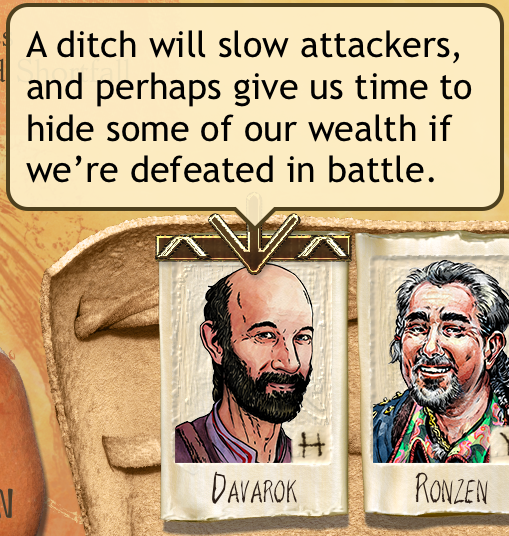
Advice is given by notable leaders you pick to sit on the clan council. As characters who live in Glorantha, they know how the world works, the customs of your culture, and what has gone on before (both the pre-game history and game events). We don’t expect you to know all the lore, because an advisor can give you a summary. They’re keenly aware of the agricultural calendar and stored food. And they can suggest actions that would be obvious to someone living in your clan.
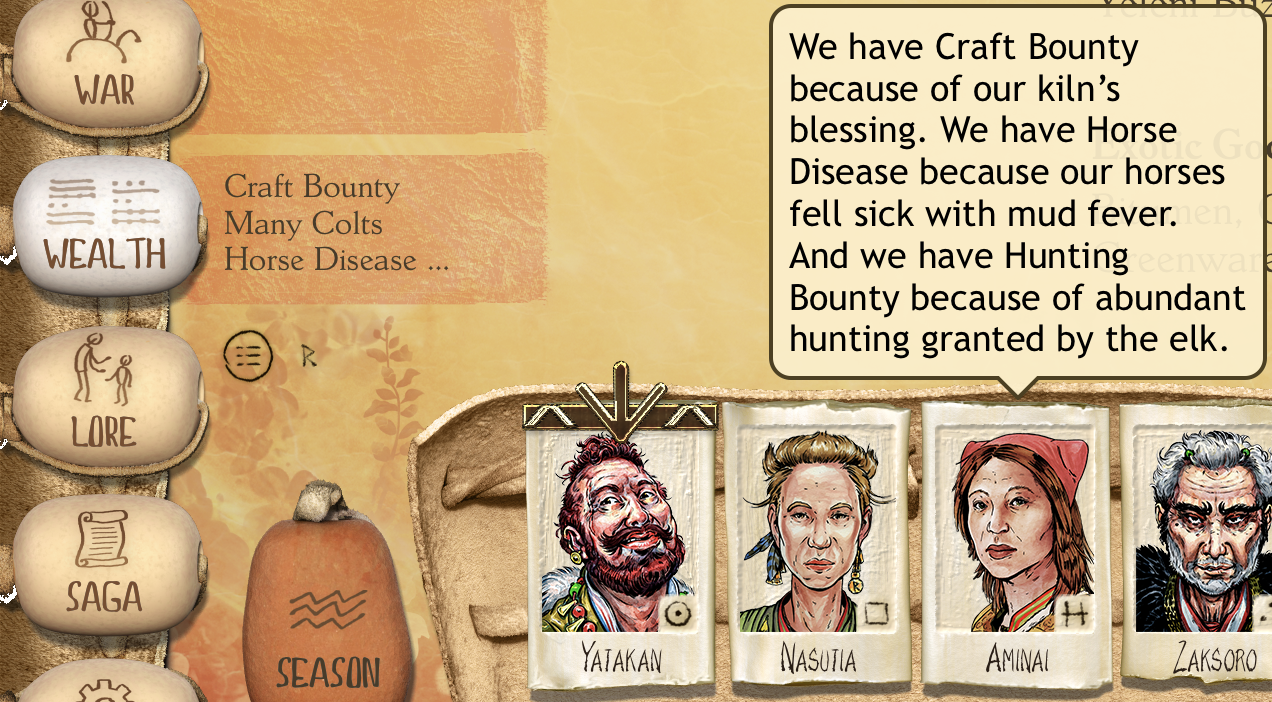
We leverage this to supplement the user interface. The dashboard (next to the menu buttons) gives a very brief summary of various concerns, and advisors can give a more detailed explanation. Advice on the Magic screen summarizes your temple maintenance costs. Advice for the Raid dialog will remind you about clans you’ve promised to raid. Wealth screen advice estimates your market profit and craft production.
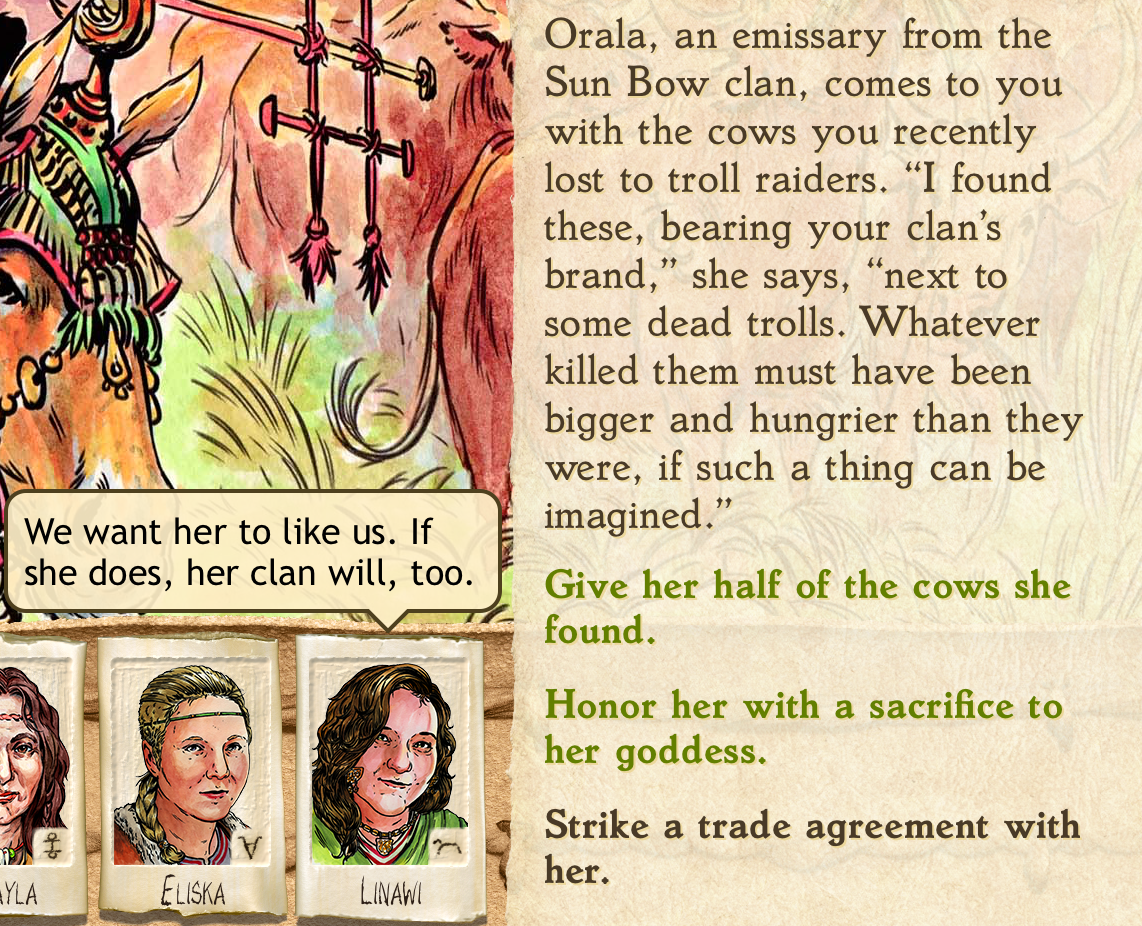
In story events, advice is often associated with recommendations. An advisor may summarize the situation or try to predict the consequences of different actions, and also suggest one or more responses. Other times, they may just let you know what the tradeoffs might be, but not suggest how to resolve them.
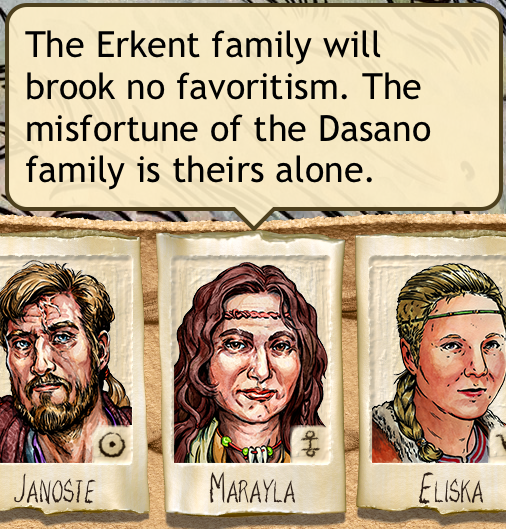
Although their job is to advise you (and carry out your decisions), your council is composed of people with personalities, which may flavor their advice. This doesn’t mean their advice is incorrect, but an advisor may tend to see only one side of certain issues. It can also provide a hint as to how well they can execute an action — a kindly character may not be ideal to try intimidating another clan, though they’ll give it their best shot if necessary.
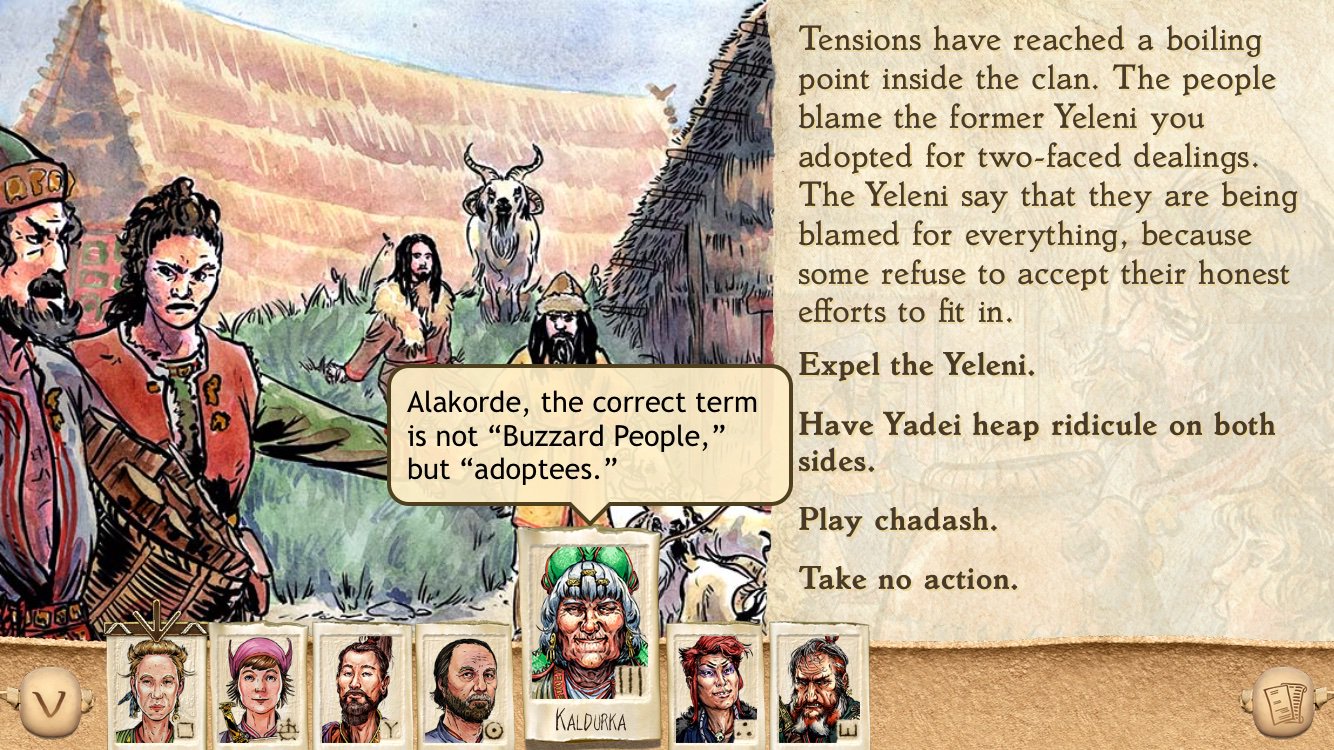
Sometimes those personalities clash, and you’ll see advisors talking to each other. Here’s the code for one such exchange:
[Relandar Priority] The Buzzard People should try harder to fit in. [4][Erissa Priority AND RelandarOnRing] <r>, the correct term is not “Buzzard People,” but “adoptees.” [5]
Characters sometimes have other human relationships to each other, particularly since the Six Ages games are multi-generational.
Getting all this to work well can be a tricky balance. In a scene, we try to make sure that you get the information you need to weigh the responses. This usually relates to the skills of your advisors. Balancing the Seven Families usually comes down to Leadership, so we try to make sure you get the best possible Leadership advice. Gauging relative military strength is the Combat skill, but if nobody on the circle has a high enough Combat ability, you won’t be shown that insight. Sometimes an event relates to a specific leader, or the god they worship, in which case we mark that advice as being higher priority. Most advice is context-sensitive (e.g. you’ll be reminded if your herds are getting low), and sometimes these sorts of conditions are also considered as priority advice. A character might give different advice depending on whether or not they’re the clan chief, or what family they belong to. On the other hand, there’s no need for two people to remind you that clan magic is depleted.
It’s also tricky in that what advice you get not only depends on the situation, but who you have on the circle. If none of them worship Elmal, you won’t get any Elmal-specific advice. If two of them happen to hate the Wheels, you might get that twice. Sometimes someone else has already given the useful skill advice, and an advisor’s traits don’t match any personality advice. There are actually two levels of fallback advice to help make sure everyone has something interesting to say. Since situations when advisors will comment to each other are rare (the circle needs two or even three characters with a particular personality or religion), we try to give these priority.
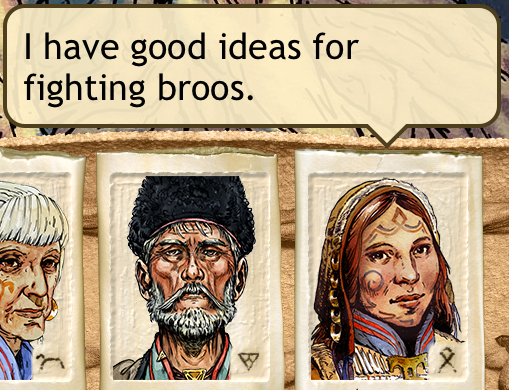
It’s worth noting that each chapter has somewhat different aspects to determine advice. Several generations after the events of “Ride Like the Wind,” it might not make as much sense to be concerned about your ancestral home, and more sense to worry about new threats. And the political situation within the clan is different.
Right now a major QA focus as we develop “Lights Going Out” is to scrutinize the advice and make sure it makes sense. If a recommendation doesn’t match what a character suggests, it might seem like a minor bug, but it actually undermines the entire idea of useful advice. Your advisors don’t know everything and they may be biased, but they aren’t stupid. There are also opportunities for advice specific to characters that might not have existed when a scene was originally written.
To summarize, I advise that you read the advice.